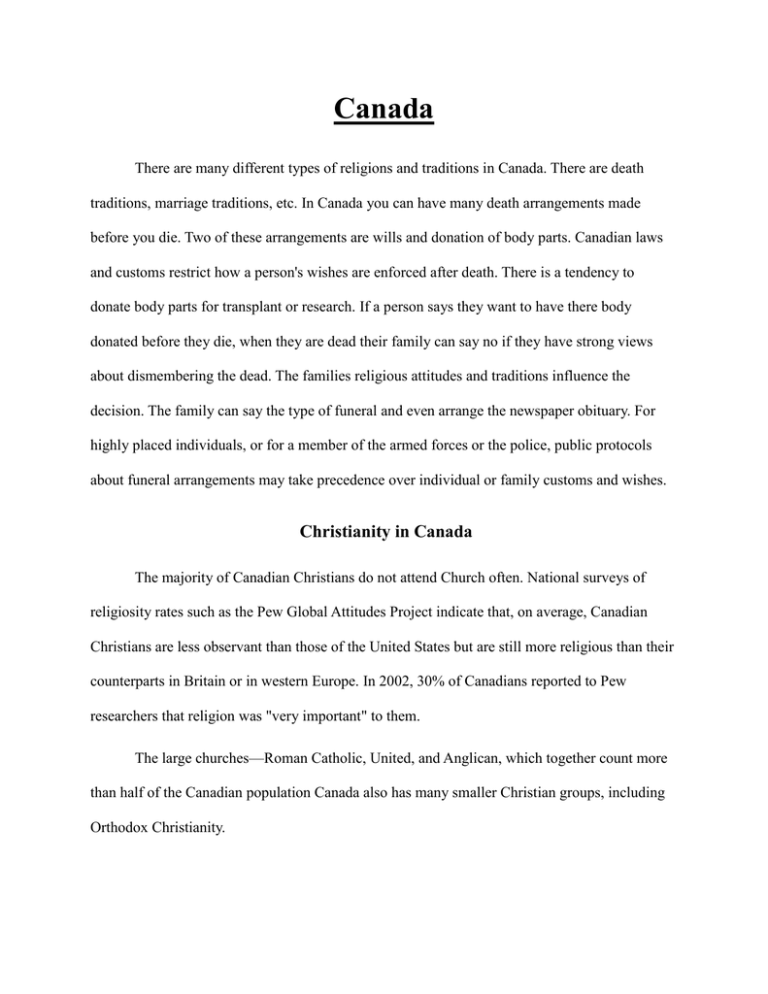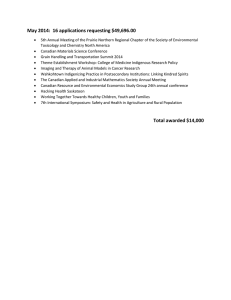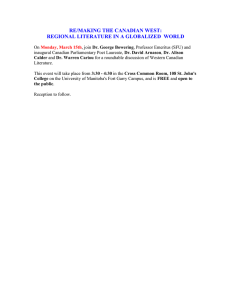Canada
advertisement

Canada There are many different types of religions and traditions in Canada. There are death traditions, marriage traditions, etc. In Canada you can have many death arrangements made before you die. Two of these arrangements are wills and donation of body parts. Canadian laws and customs restrict how a person's wishes are enforced after death. There is a tendency to donate body parts for transplant or research. If a person says they want to have there body donated before they die, when they are dead their family can say no if they have strong views about dismembering the dead. The families religious attitudes and traditions influence the decision. The family can say the type of funeral and even arrange the newspaper obituary. For highly placed individuals, or for a member of the armed forces or the police, public protocols about funeral arrangements may take precedence over individual or family customs and wishes. Christianity in Canada The majority of Canadian Christians do not attend Church often. National surveys of religiosity rates such as the Pew Global Attitudes Project indicate that, on average, Canadian Christians are less observant than those of the United States but are still more religious than their counterparts in Britain or in western Europe. In 2002, 30% of Canadians reported to Pew researchers that religion was "very important" to them. The large churches—Roman Catholic, United, and Anglican, which together count more than half of the Canadian population Canada also has many smaller Christian groups, including Orthodox Christianity. Islamic Symbol Christian Cross Religion in Canada Jewish “Star of David” Religion in the U.S. Works Cited “Predeath Protocols.” The Canadian Encyclopedia. Historica Foundation. 12 Oct 2008. <http://thecanadianencyclopedia.com/index.cfm?PgNm=TCE&Params=A1SEC821010>. “Religion in Canada.” Wikipedia. Wikipedia Foundation, Inc. 16 Oct 2008. <http://en.wikipedia.org/wiki/Religion_in_Canada>.



